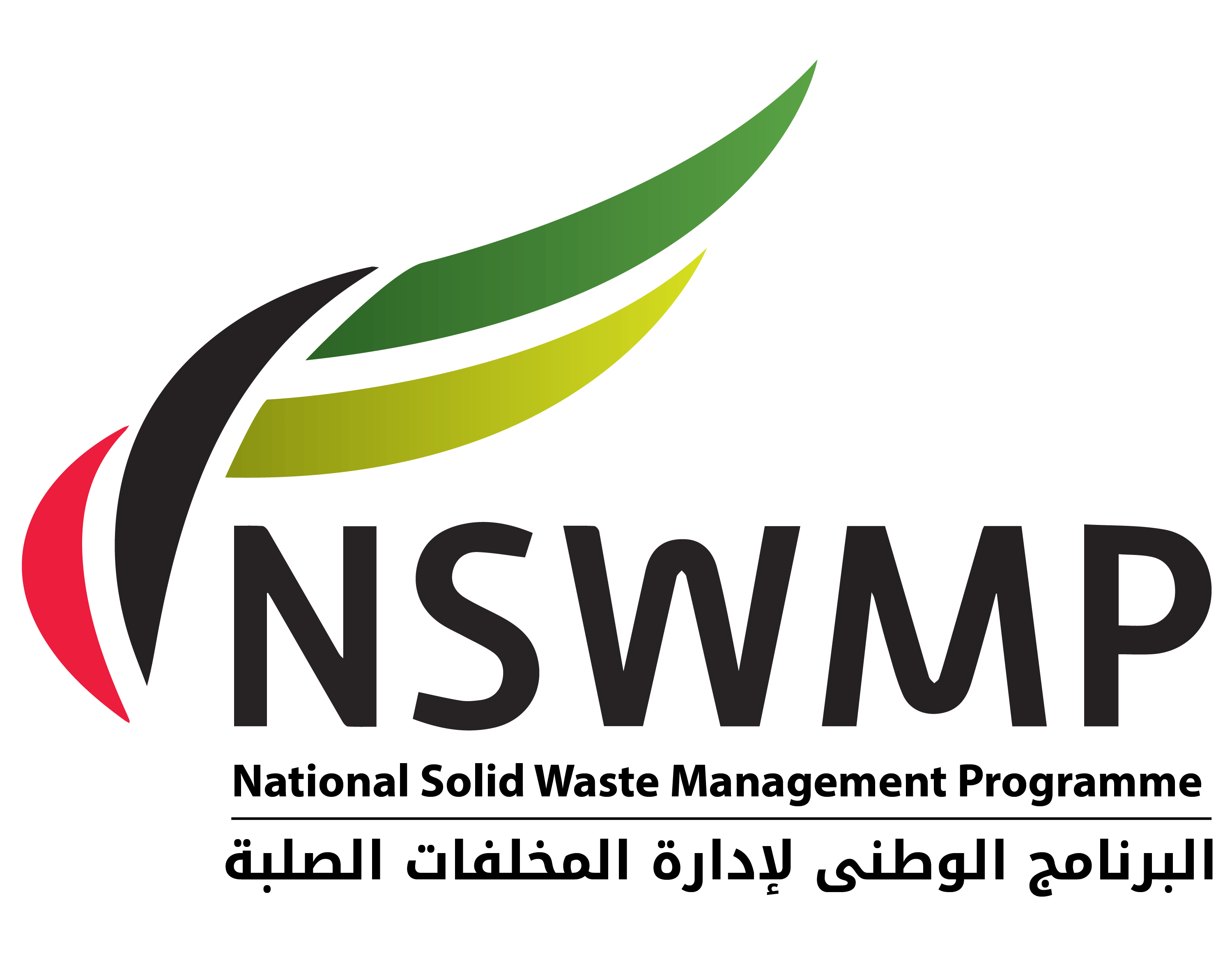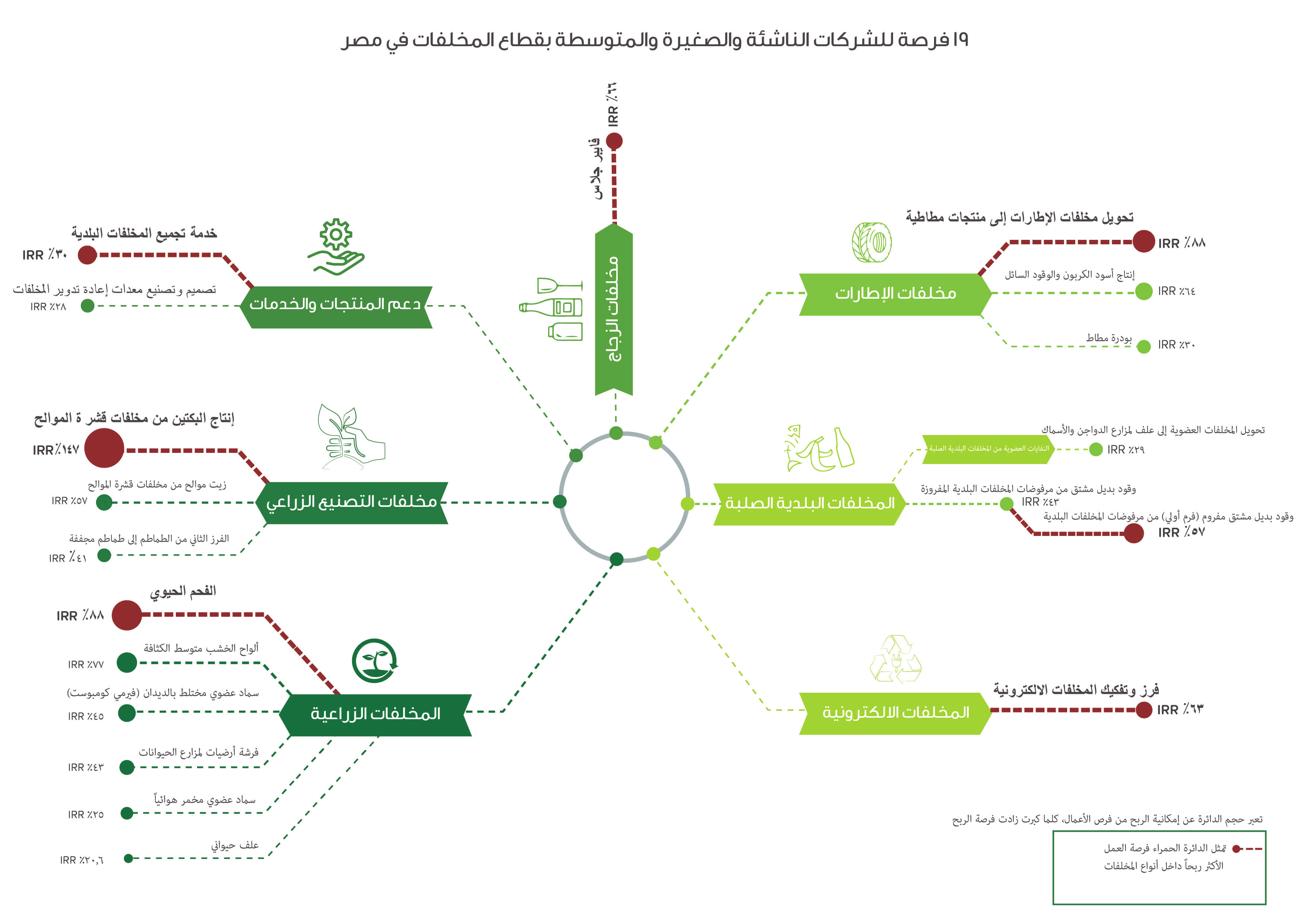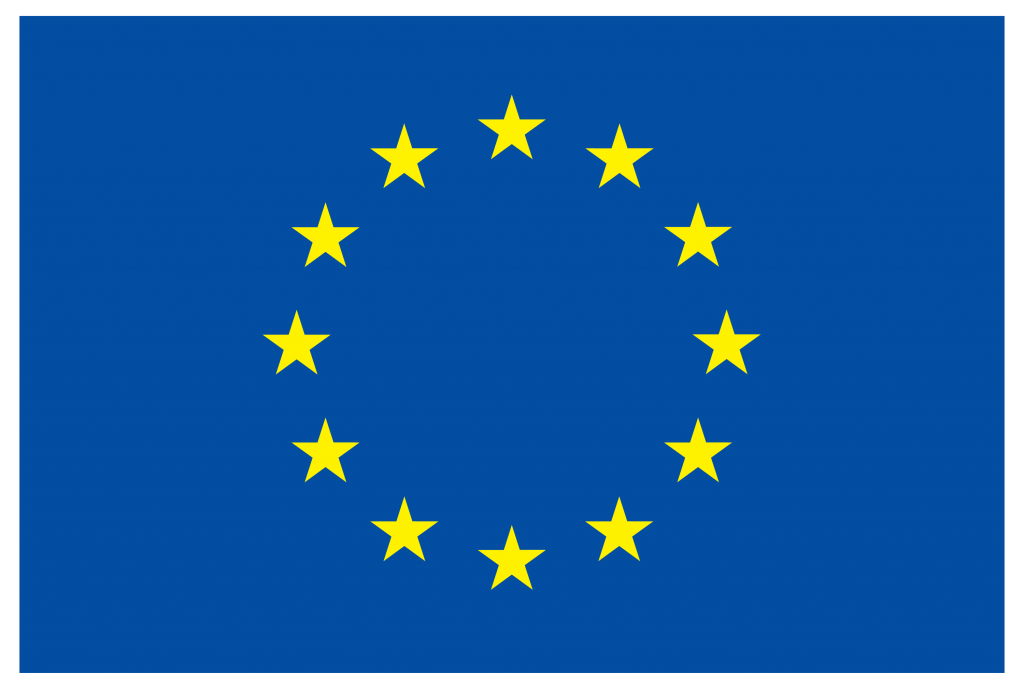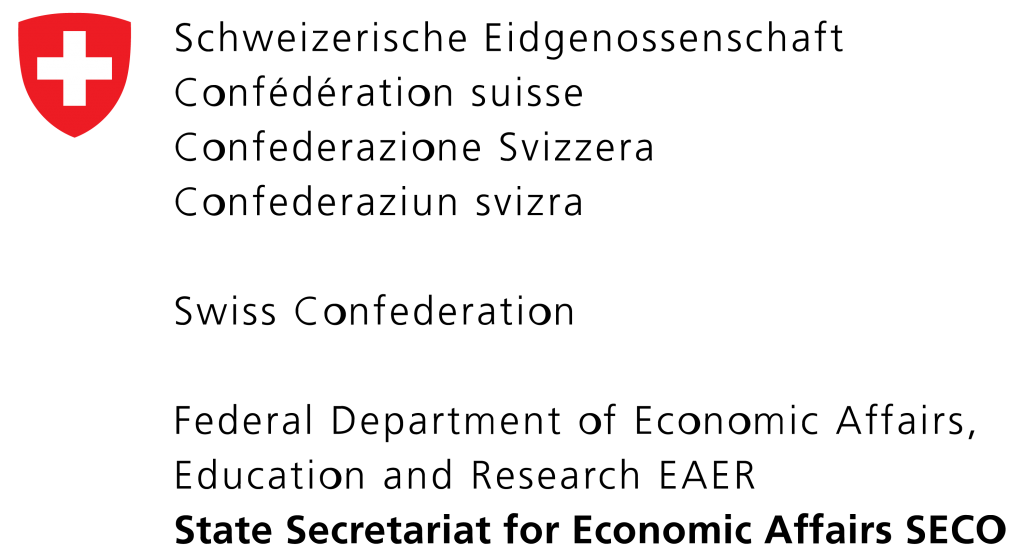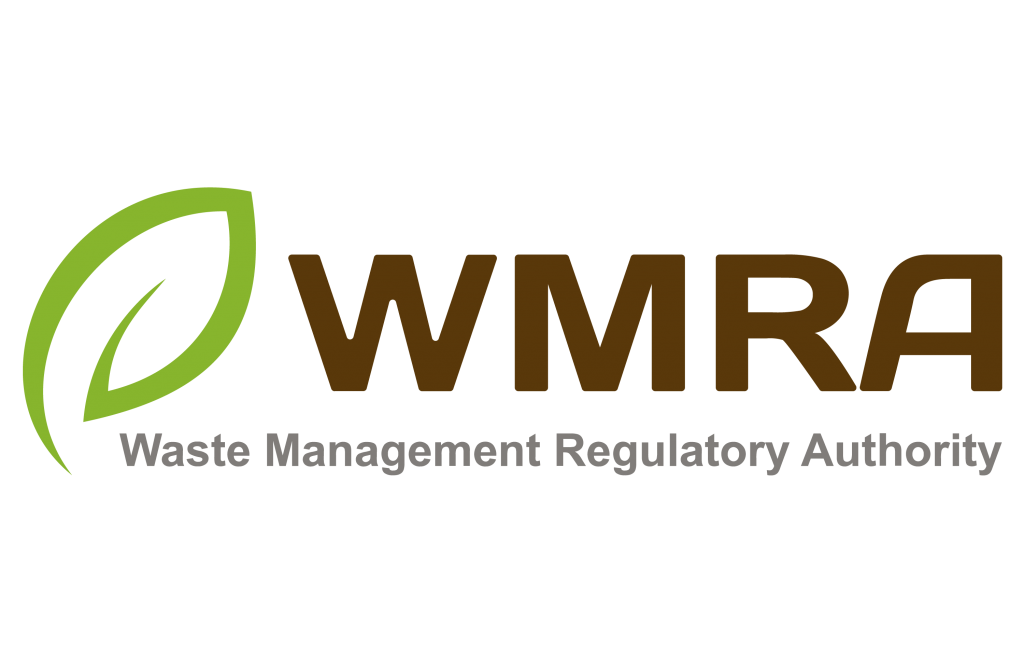فتح الأعمال التجارية في قطاع إدارة النفايات من خلال المعلومات والمعرفة ومعلومات السوق. هذه الفرص التجارية التسعة عشر هي نماذج أعمال اقتصادية في قطاع إعادة التدوير المصري يمكن أن تستفيد منها الشركات الناشئة والشركات الصغيرة والمتوسطة. تحول الفرص التجارية هذه النفايات من خلال المعالجة وإعادة التدوير والانتقال إلى استخدامات منتجة لها تأثير إيجابي على البيئة والاقتصاد والمجتمع ككل.
تم النظر فقط في فرص الأعمال في ظل الإطار التنظيمي الحالي وحد أقصى للاستثمار يصل إلى 16 مليون جنيه. للحصول على تقرير الدراسة الكامل ، يرجى اضغط هنا.
للتنقل عبر هذه الصفحة ، يرجى العثور على هذا الرمز ![]() بجوار فرصة العمل التي ترغب في الانتقال إليها مباشرةً.
بجوار فرصة العمل التي ترغب في الانتقال إليها مباشرةً.


